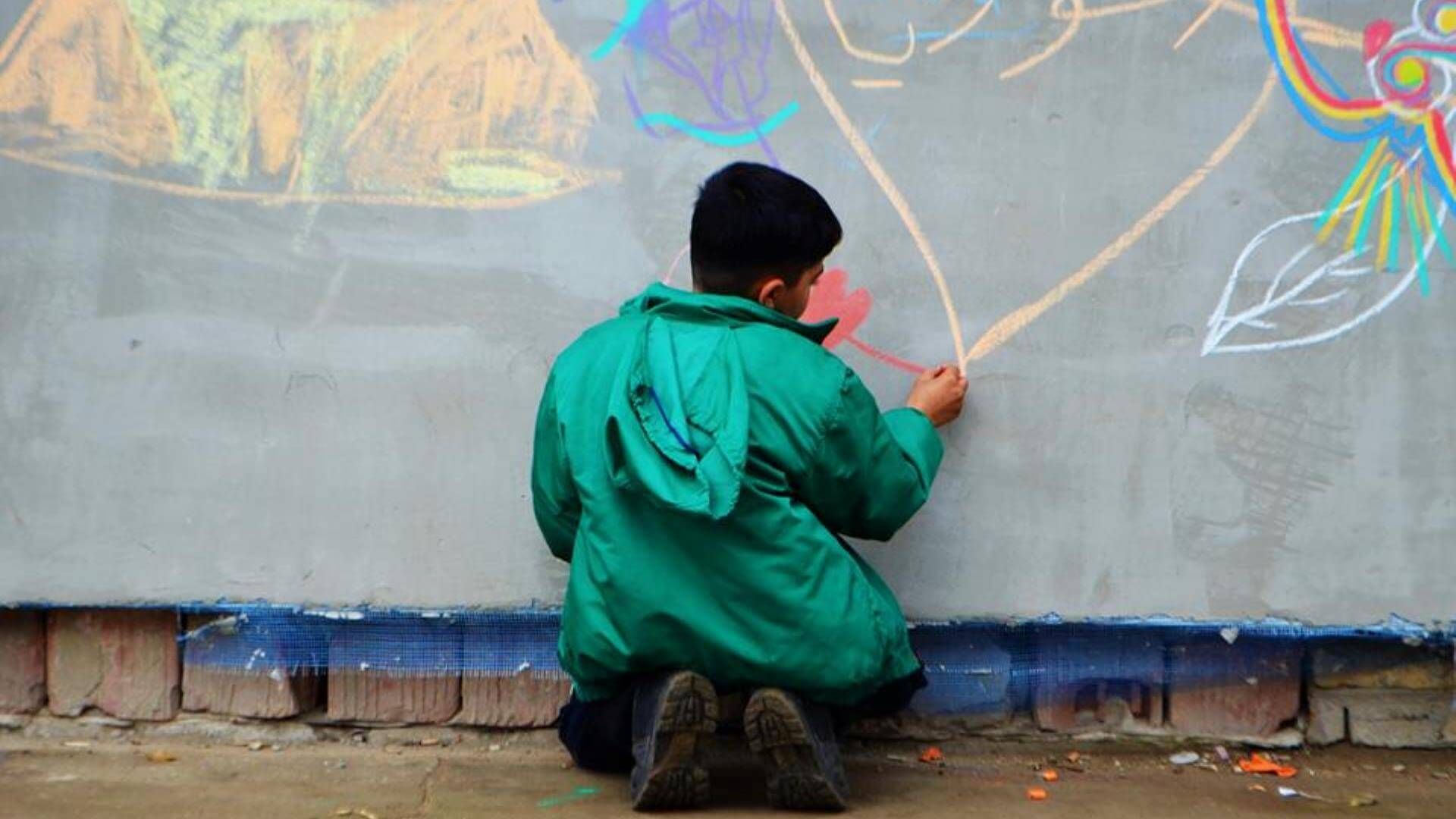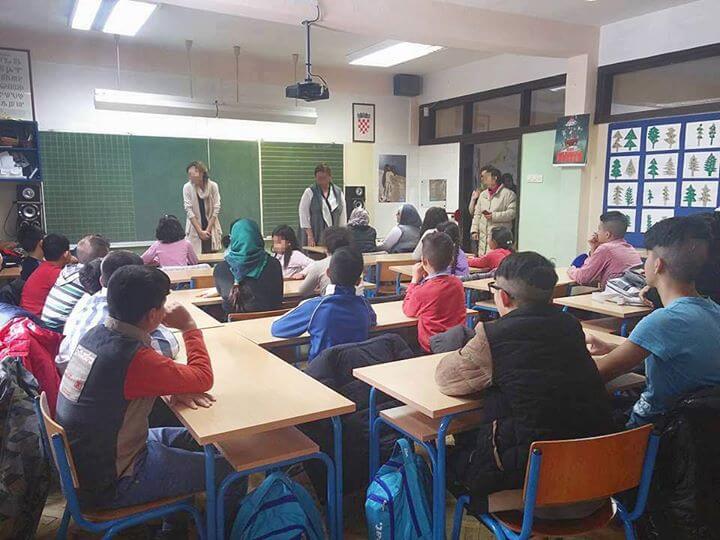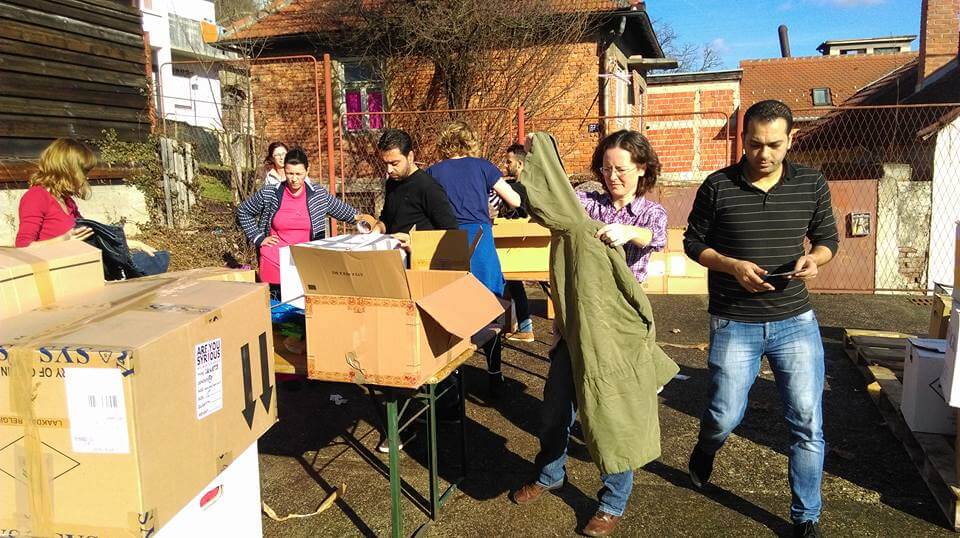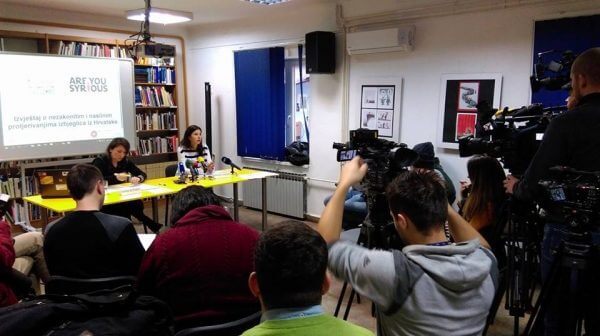
Are You Syrious? Solidarity along the Balkan route
On Sunday Are You Syrious (AYS) posted a call for volunteers in Croatian on its Facebook page: the organisation is looking for people with different abilities to help run activities for around seventy refugee children, most of whom have fled war-torn countries and are now hosted in the spaces of the Porin reception centre, in Croatia’s capital Zagreb. The activities encompass language, reading and writing classes, help with homework and play: the aim is to help the young people adjust to life in Croatia and develop friendships. Children activities are however only one of the strains of work developed by AYS, now a Non Governmental Organisation (NGO) that started its activities in August 2015, “when individual volunteers from Croatia united their efforts in gathering donations for refugees in Serbia and Hungary”, as the staff member I interview tells me.
At the time, she goes on, the Hungarian border was still open and “the route did not go through Croatia”, but after the border between Hungary and Serbia was shut down, the flow of people was diverted towards the country “and the number of volunteers, donations, and activities drastically increased”. Today AYS counts two-hundred volunteers in twenty-nine countries, and has expanded its activities in Croatia to include education and advocacy for refugee rights. The organisation currently operates in a number of European countries, including Greece and France, where it provides support to refugees through donations and volunteers. In Serbia’s capital Belgrade it has set up a mobile kitchen (now operated by the initiative Hot Food Idomeni), and is working on preparing mobile showers, while further away, in Syria, it has supported the rebuilding of a large tent camp that had previously been destroyed.


In addition to its activities on the field, AYS does an important work of documenting the humanitarian crisis, sourcing and publishing information about support initiatives active in various countries, and denouncing irregularities and violations of human rights along the refugee routes. For this purpose it has been producing daily news-digests since very early on, bringing together “important information for volunteers and refugees from all over the route”. The AYS volunteer explains that “information is gathered through a network of volunteers and contacts on the field”, and that many international media and large organisations consider the NGO a reliable source of information. I ask her whether she thinks that international media depict accurately the situation faced by refugees travelling through Europe, and she explains that they “usually focus on one hot spot, like it was Idomeni last year or Belgrade right now” and adds that a better job could be done in reporting about the difficulties faced by displaced people: “unfortunately a lot of people in Europe still have very negative attitudes towards refugees, they are not aware of the suffering these people went through in their countries, during the journey through Europe and the harsh living conditions they face here”.
She continues: “All of them had a very difficult journey and unfortunately even after they reach European soil the living conditions are very harsh. It is unimaginable that in the twenty-first century in Europe refugees have to live in tents in harsh winters, without access to clean water and proper food”. The planned closure of the Central Mediterranean route promises to make the situation even more difficult for many: on the 3rd of February the European Council outlined in fact its new plan for tackling illegal migration via the Mediterranean sea, which focuses on cooperating more strongly with Libya and its neighbours in areas such as border control, but offers no clear guidelines of what it intends to do to secure legal and safe routes to the continent or to protect vulnerable people.

Difficulties are also being faced by those who try to provide relief and support to refugees during their journey: informal initiatives of solidarity in various European countries are discouraged by authorities, as notorious cases of prosecutions for so called ‘crimes of solidarity’ sadly demonstrate. Only a few days ago the French farmer Cédric Herrou was convicted and fined 3,000 euros for helping migrants cross the border between Italy and France, and volunteers in other countries are also known to have been criminalised. I ask the AYS staff member what their relationship with authorities is like and whether there is support for their activities: “In some areas we have a very good cooperation with Croatian authorities”. “We have a very good cooperation with [the] Ministry of Interior[‘s] sector in charge for [the] accommodation of asylum seekers in Zagreb (Hotel Porin). We implement our activities there, we [have] got a big classroom for workshops and we have an open dialogue with the authorities about the constant improvement of living conditions in the centre”.
I ask if there any areas where there have been frictions: “they [Croatian authorities] are not happy with us breathing on their neck, like the last case when we filed a complaint about [the] illegal activities of Croatian police towards refugees or the mistreatment of minors”. In January 2017 AYS published in fact a news digest that stated it had been receiving “disturbing documentation, photos and stories of people who have been beaten, abused and violated by the police officers of the border areas of Serbia, Hungary, Croatia and Macedonia”, and denounced instances of disappearances of minors from children centres in Croatia. As a result, an investigation in violent and unlawful push-backs has been initiated in the country, while steps are under way to collect information about police violence and mistreatments of refugees living in Croatia in view of filing a complaint.
As European leaders turn their backs on those who today are most vulnerable, important achievements are made by the networks of people who donate their time and skills to do what is right. The staff member tells me that support from the general population is very strong, which seems to be a promising sign. AYS is proud of what it has been able to achieve as a non-profit, volunteer-only organisation, but, she clarifies: “we would be very happy if our activities were not needed”.
Cover photo by Are You Syrious?
Are You Syrious?, Balkan route, Belgrade, Central European route, croatia, featured, Hot Food Idomeni, Malta Declaration, migranti1, Migration, NGO, refugees, Serbia, zagreb